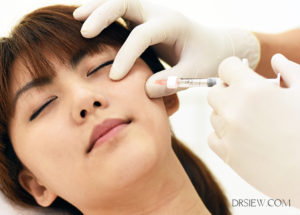
The number of people seeking facial augmentation is increasing steadily. Injectable dermal fillers are commonly used by doctors to smooth out wrinkles and enhance facial features. With several types of dermal fillers in Singapore, it is no surprise that dermal filler treatments are perhaps one of the most popular aesthetic treatments because of its versatility in addressing many problems relating to aging.
Contrary to popular belief, dermal fillers aren’t just used for achieving a pair of bee-stung lips anymore. People are seeking to restore loss of facial volume and reduce the appearance of wrinkles.
For the uninitiated, you may wonder what exactly dermal fillers are and the benefits they bring. This is why we speak to Dr. Siew Tuck Wah, Medical Director of Radium Medical Aesthetics to put together this complete guide to dermal fillers.
What happens when we age?
Our facial structure starts to change from the moment we were born. Our face becomes fully formed at around the age of 20. As we age, we will notice slight changes to our face. The aging process occurs because we lose collagen and elastin fibers as our bodily functions slow down.
Our bone mass peaks at around 30 years old. After that, bone resorption exceeds new bone formation. Over time, this leads to bone loss. This becomes evident when our facial bones deplete over time, causing cheeks to sag and orbital bones to become enlarged.
In addition, regular sun exposure and unhealthy lifestyle play an important role in how fast we age.
Reversing aging process with dermal fillers
In our skin, hyaluronic acid (HA) is present and it is involved in keeping the skin plump and moisturized. HA is a sugar molecule that is naturally found in our skin and joints. It is also a very important compound to keep the skin supple and firm to the touch.
In the hands of an experienced injector, dermal fillers can preserve your youth and even act as a preventative treatment for someone who might consider a surgical cosmetic surgery in the near future.
The non-surgical procedure of filling the voids in the face caused by aging is not a new concept. One of the earliest methods that doctors tried was to transfer fat from one part of the body such as tummy or thighs to the face as a mean to preserve the youthful appearance of the face.
While some doctors still perform fat transfers, the evolution of facial fillers has progressed and surpassed fat transfer. Today, there is a wide range of dermal fillers with varying viscosity for different purposes.
Types of dermal fillers
There are 2 main categories of dermal fillers that are approved for use in Singapore. They are the HA dermal fillers are non-permanent, and bio-stimulating collagen fillers that are semi-permanent.
HA DERMAL FILLERS This is probably the largest and most common dermal fillers doctors use in Singapore. HA is a type of sugar molecule that exists in our bodies. HA fillers contain HA suspended in a gel. When injected into the skin, it absorbs water, causing the gel to swell and plump up the area.

Depending on several factors, HA fillers can typically last between 6 months and 2 years.
Some popular brands that doctors use include Juvederm, Restylane, and Belotero.
BIO-STIMULATING FILLERS This is a special group of fillers that plumps the skin by adding volume to it. In addition, these fillers contain unique features to encourage the body to stimulate collagen for longer and more natural results.
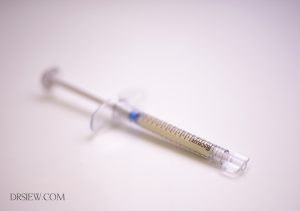
Calcium Hydroxyapatite (CaHA) fillers are commonly used by doctors to immediately add volume to deficient areas and contour facial features. CaHA is a mineral that is also naturally-occurring in the bones. CaHA is mixed into a gel before injecting into the face. CaHA fillers are usually thicker than HA fillers. Doctors inject CaHA fillers deep under the tissue to kick start collagen production. They can last for at least 12 months. CaHA fillers are known to stimulate collagen production in our own bodies. The leading brand of CaHA fillers is Radiesse.
Poly-l-lactic (PLLA) acid is a synthetic substance. You might find the term familiar because thread lift in Singapore commonly use threads made of PLLA. Once again, these tiny crystals of PLLA are suspended in a gel. The gel gets absorbed by the body, retaining the PLLA crystals in the treated area. These PLLA crystals initiate the body to build its own collagen around them. The most popular brand is Sculptra.
Another popular collagen filler in Singapore is Ellanse. It is made of a synthetic material called polycaprolactone (PCL). These are precisely engineered microspheres and suspended in a gel made of carboxy-methylcellulose gel. After injecting into the face, the gel immediately smoothens and plumps up the skin. Over time, when the gel gets absorbed by the body, the newly formed collagen stimulated by the PCL molecules replace the gel to sustain the effects for another 12 months.
Although these dermal fillers suggested in this article are for their approved indications, a doctor may use them for ‘off-label’ indications. This means that the doctor may use the filler on a different part of the face.
To ensure that you achieve the most beneficial outcome for your face with dermal fillers, always look for an accredited doctor with at least 5 years of experience in administering dermal fillers.





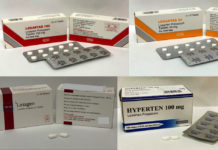




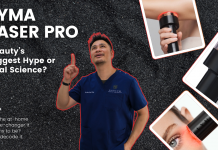
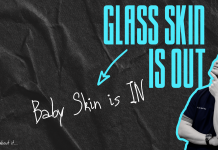
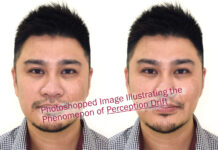






Of the three bio-stimulating fillers, which is most effective? What is the cost comparison? Which filler do you use? I just turned 50 and was injected with Botox and 1 vile of Voluma. I’ve been getting fillers since I turned 43. I like to look naturals, so the one vile seemed like enough. Last time I got Voluma, it made very little difference. Usually injecting my cheek bones, lifts up the skin and reduces my jowls. This time, not so much. Any recommendations? Thank you!!!
Hi Lisa – Thanks for your message. After using them for several years, I find that results are similar. Pricing is also rather similar. However, some bio-stimulating fillers such as Sculptra can last very long and produce very good volumnizing results. Ellanse and Radiesse are good for sculpting. It also depends on your skin texture and condition. Have a chat with your doctor and tell him your concerns. He will recommend the best fillers for you.